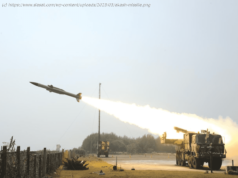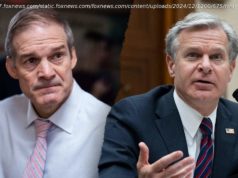U. S. President Donald Trump criticised Iran on Tuesday as a « corrupt dictatorship » that is plundering the Iranian people to pay for aggression abroad.
New York – U. S. President Donald Trump criticised Iran on Tuesday as a « corrupt dictatorship » that is plundering the Iranian people to pay for aggression abroad, using his speech to the United Nations General Assembly to lay down a tough message for Tehran.
« Iran’s leaders sow chaos, death and destruction, » Trump told the annual gathering.
« They do not respect their neighbours or borders or the sovereign rights of nations. »
Trump compared U. S. relations with Iran to what he called improved ties with North Korean leader Kim Jong Un, praising him for halting nuclear and missile tests and returning some U. S. remains from the 1950s Korean War.
Trump had called Kim a « rocket man » bent on nuclear destruction in his U. N. speech last year.
Trump used his speech to call for international trade reforms and insist that his main objective as president is to protect American sovereignty. He called on OPEC to stop raising oil prices and criticized China’s trade practices.
And Trump prompted some murmuring from the crowd of world leaders and diplomats when he declared that he had accomplished more as president than almost any other administration in history.
« I didn’t expect that reaction, but that’s okay, » he said.
But Trump’s main message was aimed at Iran and attempting to drive a wedge between its leadership and its people, days after an attack in southwestern Iran on a military parade killed 25 people and unsettled the country.
In remarks to reporters on his way to his speech before the United Nations General Assembly, Trump said he would not meet the Iranians until they « change their tune. »
Both Trump and Rouhani were attending the annual UN event.
« Iran has acted very badly, » said Trump. « We look forward to having a great relationship with Iran, but it won’t happen now. »
Foes for decades, Washington and Tehran have been increasingly at odds since May, when the Republican U. S. president pulled out of the 2015 international nuclear deal with Iran and announced sanctions against the OPEC member.
The accord, negotiated under Democratic U. S. President Barack Obama, lifted most international sanctions against Tehran in exchange for Iran curbing its nuclear program.
Over the summer, Trump had said he would meet with Rouhani without preconditions to negotiate a new deal, an offer reiterated on Sunday by U. S. Secretary of State Mike Pompeo and extended to Iran’s supreme leader, Ayatollah Khamenei.
Rouhani said on Monday Tehran would not talk to Trump until the United States returned to the 2015 deal..
The top adviser to Khamenei, Ali Akbar Velayati, rejected the U. S. offer on Tuesday, saying « Trump’s and Pompeo’s dream would never come to reality, » the IRNA news agency said.
« Despite requests, I have no plans to meet Iranian President Hassan Rouhani. Maybe someday in the future. I am sure he is an absolutely lovely man, » Trump wrote in a post on Twitter earlier on Tuesday.
Alireza Miryousefi, spokesman for Iran’s U. N. mission, told Reuters that Iran has not requested a meeting with Trump.
Some Iranian insiders have said any talks between Rouhani and Trump would effectively kill the existing nuclear accord.
Quashing the current pact would come at a political cost for the Iranian president, who championed the deal with the supreme leader’s guarded backing and could lose support from European allies.
Rouhani is also under increasing pressure from Iranian hardliners, including Iran’s elite Revolutionary Guards, which have kept up the anti-American rhetoric ahead of the U. N. session.
Trump’s administration is pushing allies to cut imports of Iranian oil to zero as Washington prepares to restore sanctions on Iran’s oil sales in November.
The remaining countries in the deal, which see it as the best chance to stop Iran from developing a nuclear bomb, on Monday agreed to keep working to maintain trade with Tehran.
German Foreign Minister Heiko Maas, following a meeting on Monday with Britain, China, France, Germany, Russia and Iran in New York, warned that the U. S. strategy of applying maximum pressure on Tehran and going it alone could risk a regional escalation.
– Additional reporting by Michelle Nichols, Arshad Mohammed, Yara Bayoumy
Reuters






